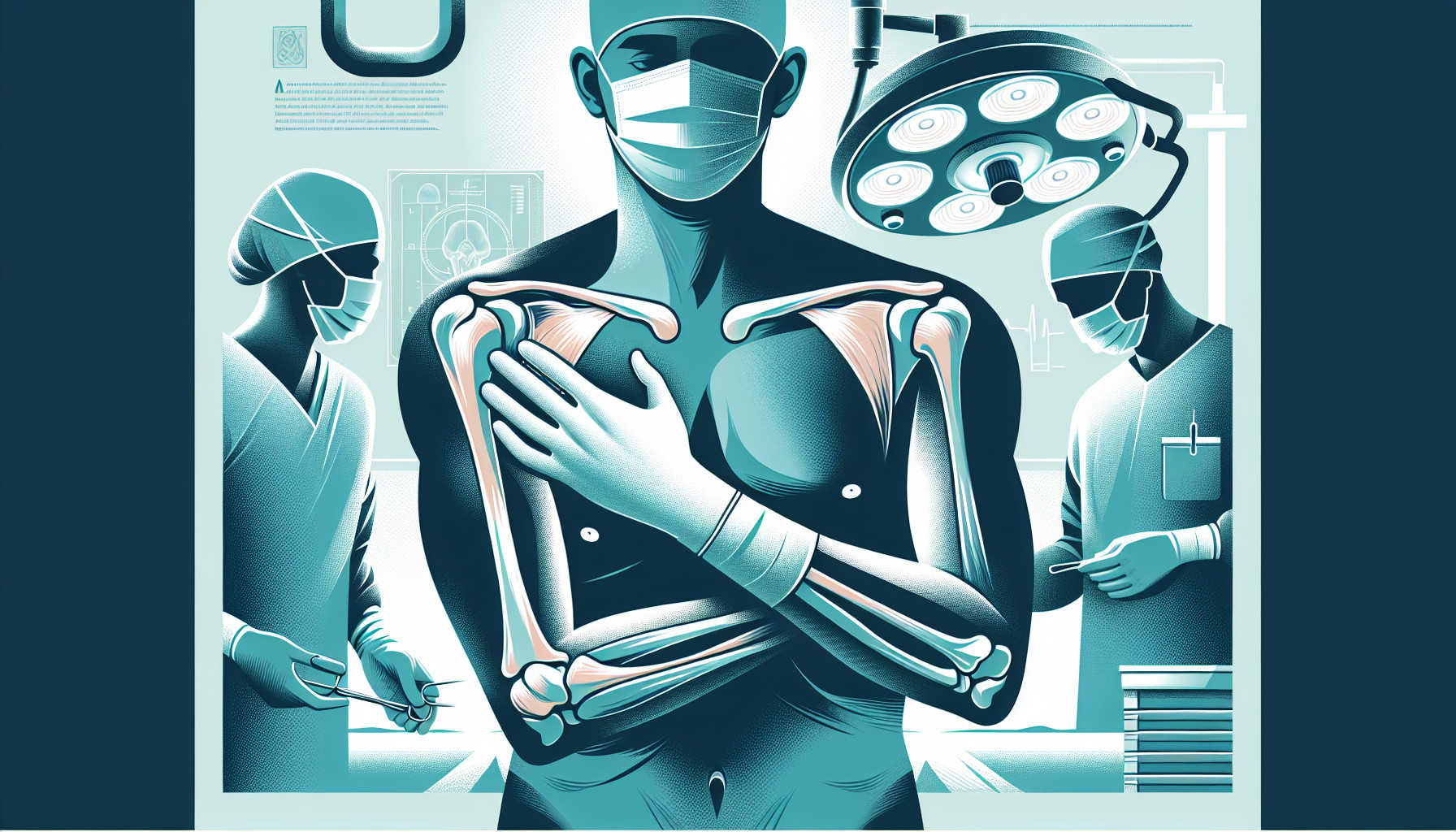Our Summary
This research paper discusses the importance of a muscle in the shoulder called the teres minor. While this muscle may often be overlooked, it plays a crucial role when other muscles in the shoulder, specifically the rotator cuff tendons, are damaged or not working properly.
The teres minor helps in maintaining the balance of the shoulder joint. If there’s a serious issue with the rotator cuff, the teres minor becomes a vital player in the external rotation (turning outward) of the shoulder.
The presence or absence of this muscle can give doctors a good idea of the likely outcomes after certain shoulder surgeries, like a reverse total shoulder replacement or tendon transfers.
There are several clinical tests that can help assess the condition of the teres minor. These tests include the Patte test, the Neer dropping sign, the external rotation lag sign, and the Hertel drop sign.
Advanced imaging techniques can also be used to get a better look at the teres minor and help classify its condition using a method called the Walch system.
Understanding how the teres minor works and the problems that can occur with it is very important for the overall treatment of patients with shoulder issues. Proper examination and imaging of the teres minor are important steps before surgery and for setting expectations after surgery.
FAQs
- What is the role of the teres minor in maintaining shoulder function?
- How does the presence or absence of the teres minor provide prognostic information on the outcomes of reverse total shoulder arthroplasty and tendon transfers?
- What clinical tests and imaging are used for understanding the function and pathology of the teres minor?
Doctor’s Tip
A helpful tip a doctor might tell a patient about shoulder replacement is to follow the post-operative rehabilitation plan closely to ensure optimal recovery and function of the shoulder joint. This may include physical therapy exercises to strengthen the muscles surrounding the shoulder and improve range of motion. It is important to communicate any concerns or complications to your healthcare provider to address them promptly and effectively. Additionally, maintaining a healthy lifestyle with regular exercise and a balanced diet can support the healing process and long-term success of the shoulder replacement.
Suitable For
Patients who are typically recommended for shoulder replacement surgery include those who have severe shoulder pain, stiffness, and loss of function due to conditions such as osteoarthritis, rheumatoid arthritis, post-traumatic arthritis, avascular necrosis, rotator cuff tear arthropathy, and severe fractures. Additionally, patients who have failed to improve with conservative treatments such as physical therapy, medications, and injections may also be candidates for shoulder replacement surgery. It is important for patients to undergo a thorough evaluation by a healthcare provider to determine if shoulder replacement surgery is the best course of action for their specific condition.
Timeline
Before shoulder replacement surgery:
- Patient experiences chronic shoulder pain, weakness, and limited range of motion.
- Patient undergoes physical therapy, corticosteroid injections, and other conservative treatments to manage symptoms.
- Imaging studies such as X-rays, MRI, and CT scans are performed to assess the extent of shoulder damage.
- Orthopedic surgeon evaluates the patient’s medical history, physical examination, and imaging results to determine if shoulder replacement surgery is necessary.
After shoulder replacement surgery:
- Patient undergoes the surgery, which involves replacing the damaged shoulder joint with a prosthetic implant.
- Patient stays in the hospital for a few days for postoperative monitoring and pain management.
- Patient begins physical therapy to regain strength, flexibility, and range of motion in the shoulder.
- Over time, patient gradually resumes normal activities and experiences improved shoulder function and reduced pain.
- Follow-up appointments with the orthopedic surgeon are scheduled to monitor the healing process and assess the success of the surgery.
What to Ask Your Doctor
- How will a shoulder replacement surgery benefit me in terms of pain relief and improved function?
- What are the risks and potential complications associated with shoulder replacement surgery?
- How long is the recovery process after shoulder replacement surgery and what can I expect in terms of physical therapy and rehabilitation?
- Will I need any special accommodations or modifications in my daily activities after the surgery?
- How long can I expect the shoulder replacement to last and what are the chances of needing a revision surgery in the future?
- Are there any specific restrictions or limitations I should be aware of after the surgery?
- How often will I need to follow up with you after the surgery for monitoring and check-ups?
- Are there any alternative treatments or procedures that I should consider before opting for shoulder replacement surgery?
- What are the success rates of shoulder replacement surgery in patients with similar conditions to mine?
- Can you provide me with information on the specific type of shoulder replacement that you recommend for my condition and why?
Reference
Authors: Williams MD, Edwards TB, Walch G. Journal: J Am Acad Orthop Surg. 2018 Mar 1;26(5):150-161. doi: 10.5435/JAAOS-D-15-00258. PMID: 29473831
